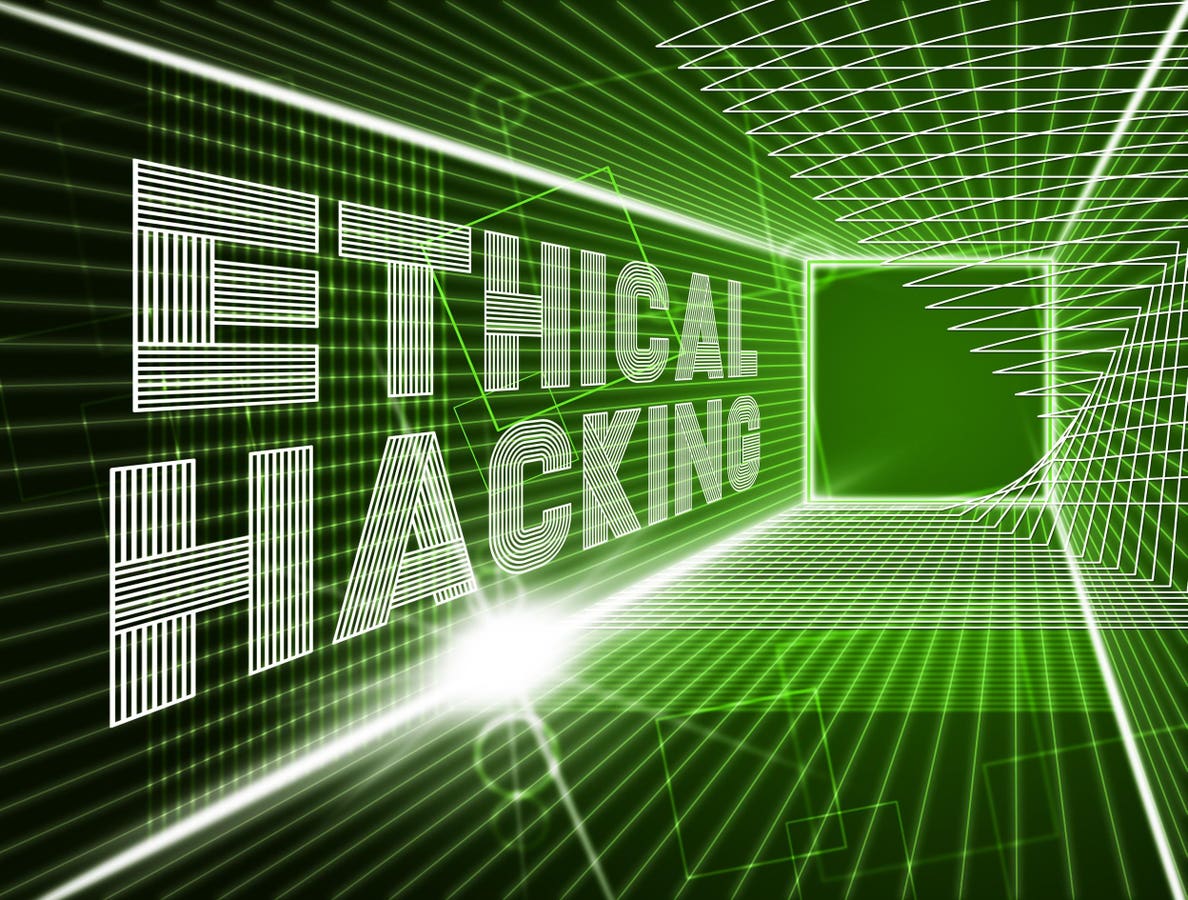A good degree in computer science, plus specialist certifications, should put you in the right … More
Hacking involves finding the weaknesses in computer systems and determining how they can be exploited — and most hackers are pretty unsavory types, accessing corporate systems to carry out scams and fraud, or stealing data that can then be held to ransom. That isn’t, though, always the case. Ethical hackers use exactly the same techniques as their criminal counterparts to work for rather than against an organization, discovering vulnerabilities that can then be fixed before any harm is done. So how can you become an ethical hacker? We look at the skills, qualifications and experience that you’ll need to get into the business.
Job Responsibilities Of An Ethical Hacker
Unlike the popular image of hackers, ethical hackers don’t tend to spend their lives in darkened rooms wearing a hoodie and hunched over a laptop. It’s a responsible job that requires an organized approach.
Ethical hackers will start by familiarizing themselves with the company’s systems, collecting public information and identifying domain names, IP addresses and network infrastructure. They will then use a range of tools to scan the target system for vulnerabilities, checking for weaknesses like open ports or known vulnerabilities in software and hardware. They may also look for “human” weaknesses such as weak passwords, failure to update systems and devices and a lack of effective security training. Ethical hacking is particularly important for organizations that handle large quantities of sensitive data, such as finance or healthcare, as well as within the tech industry itself to make sure their products are as secure as possible.
How To Become An Ethical Hacker
In some cases, becoming an ethical hacker is a case of poacher-turned-gamekeeper, with certain malicious hackers having changed sides in the game.
More usually, it’s a specialization within the cybersecurity industry that generally requires various skills, qualifications and experience. Successful candidates are likely to have a degree in computer science or cybersecurity, as well as one of more specific certifications. They’ll also probably have a few years’ experience in the cybersecurity field. Some ethical hackers, though, work for themselves, earning their cash via bug bounty programs, meaning that they can be largely self-taught. Beyond technical skills, successful ethical hackers need a methodical, organized approach to the job, the ability to think originally and laterally and strong problem-solving skills.
Step 1: Get The Right Education/Training/Certifications
Most ethical hackers will have a degree in computer science or network engineering, which provides the basic programming skills required. Some degree courses include special modules on cybersecurity.
A master’s will help; but probably the most useful qualification is one of several specialist certifications. Top of the list is probably the Certified Ethical Hacker (CEH) qualification, run by EC-Council. Others include Offensive Security Certified Professional (OSCP) Certification and CompTIA Cybersecurity Analyst (CySA+).
Step 2: Build Up The Right Skills
Ethical hackers need strong coding skills in languages like Python, C++ and JavaScript, as well as a good knowledge of computer hardware.
A problem-solving mindset is a must, with the ability to think laterally. Having said that, it’s important to have a methodical approach to the job. And communication skills are also important, both for liaison with colleagues and for writing reports to be submitted to clients.
Step 3: Gain Relevant Experience
Good foundations for a career in ethical hacking include roles in tech or network support or network engineering. Here, it may be possible to get a bit of hands-on experience in cybersecurity and penetration testing.
Entry-level positions in cybersecurity include security administrator, security specialist or security software developer roles, which may be followed by jobs such as security analyst or security consultant.
Step 4: Take Part In Challenges
One good way to work on your skills is through Capture The Flags, competition where teams or individuals have to solve a number of challenges similar to those found in the real world.
The Hackthebox platform offers a range of challenges, as well as training courses. Meanwhile VulnHub has downloadable virtual machines for users to set up their own labs. Once you really know what you’re doing, you could try earning bug bounties through platforms like HackerOne, Bugcrowd or Intigriti.
Ethical Hacker Salary
Ethical hackers are fairly well-paid in the U.S., with an average of $122,000 a year, according to Glassdoor.
Pay rates are very dependent on experience, though, with new starters averaging $93,317 and those with between seven and nine years of experience pulling in $142,655. The highest listed salary available is currently $218,280. Regions with high pay, according to Talent.com, include North Carolina, at $160,000, Maryland at $158,350 and California at $123,750. The big tech companies, such as Google, Amazon and Microsoft, are likely to pay the most, with the financial and healthcare sectors also good payers.
How To Find Ethical Hacker Jobs
Any job site with a good range of tech positions is likely to be a good bet: Indeed, LinkedIn, Monster and the like.
There’s also an enormous number of specialist cybersecurity job websites, which may be worth checking out if you have the time. One reputable and trustworthy job board specialising specifically in ethical hacker jobs is Hackthebox. It’s also a very good idea, though, to identify organizations you’d like to work for and keep an eye on their recruitment pages, as well as networking with any useful contacts that you may have. Employers will be looking for a good knowledge of computer networks, operating systems, apps and the internet, as well, of course, relevant experience. In your resume, covering letter and interview, you should highlight any audits and system tests you’ve helped carry out, along with how your insight helped to improve security.
Bottom Line
The job of ethical hacker is an exciting and varied one. While it requires a solid background in tech, and a certain level of specialist skills, it’s not difficult to work your way up over a period of a few years. A good degree in computer science, plus specialist certifications, should put you in the right position to become an ethical hacker.








